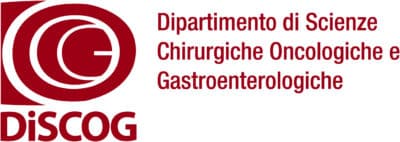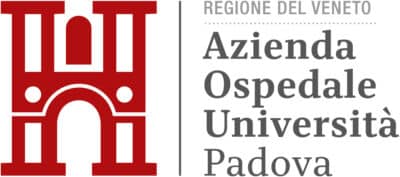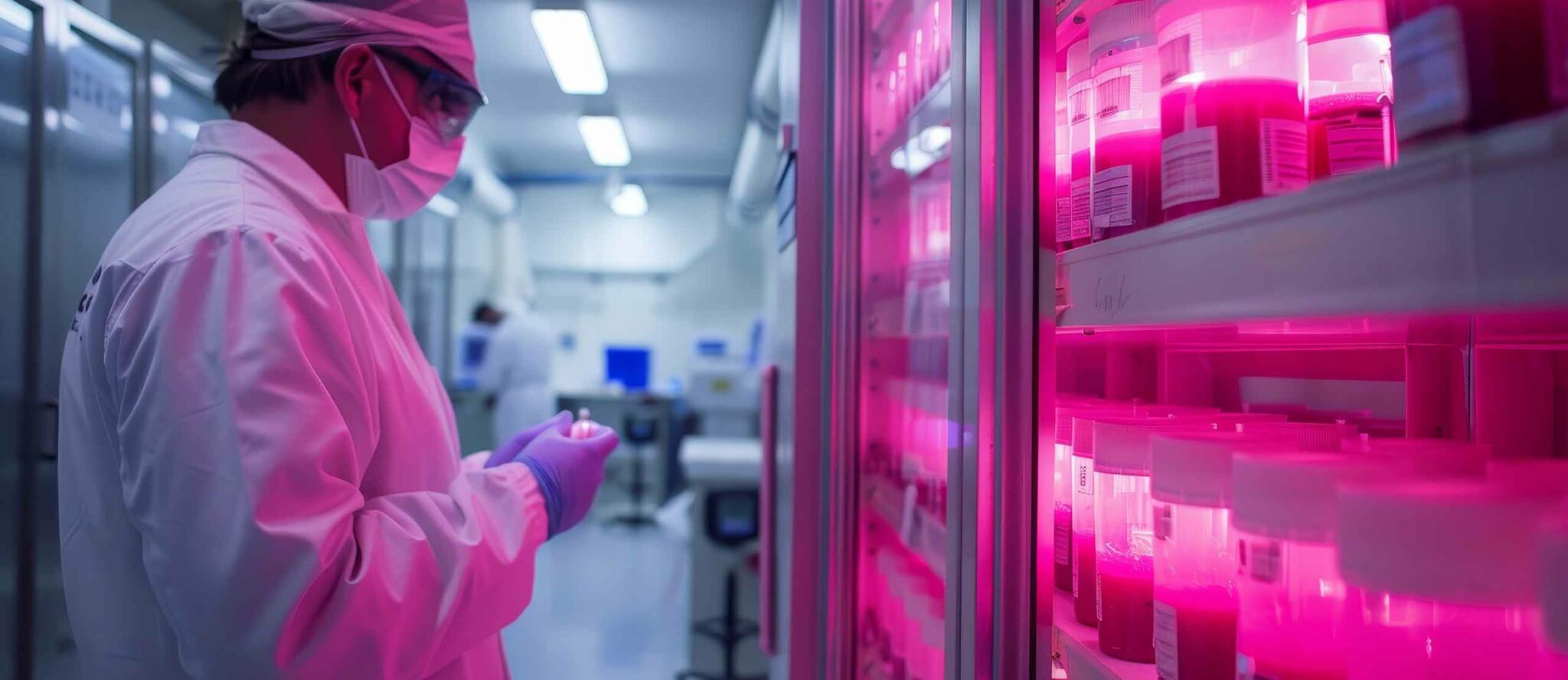

The Master in Research Biobanking provides training on the development and structure, management, equipment and challenges of biobanks, as well as on the sector’s networking opportunities.
The goal is preparing expert professionals in relevant fields, such as:
- National and international biobanks
- Medical and base research
- Pharmaceutical industry
- Diagnostic companies
In detail, the Master in Research Biobanking prepares students on how to establish and implement a biobank at national and international level, and on how to apply knowledge on:
- structure organization, quality management, risk and legal representation of a biobank;
- infrastructure implementation (including IT), budget drafting;
- sustainable biobank management;
- biobank sample management and ELSI aspects;
- epidemiology, biostatistics, and research fields;
- theoretical knowledge and hands-on ability on team and scientific project management.
Moreover, it prepares students on how to identify international projects in the biobank and structure networking field.
The Master in Research Biobanking is addressed to graduates in natural, medical, pharmaceutical sciences or in biomedical engineering application areas.
It is also addressed to students interested in the biobank application and activities sector, and those interested in acquiring specific skills in the technical and legal field relating to the management of biological material and the biobanking process.
Titles admitted to the Master:
- Biotechnologies
- Pharmaceutical and industrial biotechnologies
- Medical biotechnologies
- Chemistry
- Pharmaceutical and industrial chemistry and technology
- Pharmacy
- Law
- Biomedical and material engineering
- Industrial technology engineering
- Medical engineering
- Medicine and surgery
- Veterinary medicine
- Orthodontics and dental prosthetics
- Biological sciences
Competences acquired:
- Management of a research biobank processes and protocols;
- Independent judgement: assessment of objectives, roles, activities, organizational methods, research biobank activities, and support to research projects;
- Communication abilities in promoting the organizational development of a research biobank within an institutional organization and/or network;
- Ability to learn useful methods to promote, coordinate, and manage biobanking processes and responsibilities, and to support applied biomedicine research projects.
The Master in Research Biobanking provides specific training on the following topics:
LEGAL AREA
- Module 1 – Legal aspects 1: general and privacy-related (GDPR) legal aspects
- Module 2 – Legal aspects 2: specific law; risk level assessment according to Article 110.
- Module 3 – Ethical aspects: informed consent and ethical aspects concerning biobanks.
- Module 4 – Organization and management: risk management.
- Module 5 – Project Management in the healthcare sector: principles, functions, methodologies; project managers and interaction with the organizational structure.
MEDICAL AREA
- Module 6 – Introduction to research biobanking: basic knowledge, responsibilities, coordination.
- Module 7 – Organization and management 1: business models and sustainability.
- Module 8 – Organization and management 2: multidisciplinary group management.
BIOMEDICAL TECHNICAL AREA
- Module 9 – Sample collection and management: collection, management, quality control.
- Module 10 – Biobanking IT: IT infrastructure (Hardware/Software).
- Module 11 – Research biobanks, epidemiology, and active patient involvement: epidemiology research methods.
- Module 12 – Quality management and quality control: fundamentals of quality management systems (QMS), ISO 9001:2015, ISO 20387:2018, quality control (QC).
- Module 13 – Organization and management.
- Module14 – National and European research infrastructure: BBMRI-ERIC, the Italian BBMRI.it hub, research projects.
- Module 15 – Research methods 1: biobanking and AI.
- Module 16 – Research methods 2: organoid biobank and clinical applications.
- Module 17 – Research methods 3: organ transplants and biobanking: pancreas or pancreatic insula transplants.
- Module 18 – Research methods 4: tissue, patient-derived organoid (PDO) and organ on chip biobank.
- Module 19 – Research methods 4: innovative strategies for tissue engineering.
- Module 20 – Pathological Anatomy and biobanks: suitability of the organic tissue material collection.
The general ranking of merit for the academic year 2025/26 will be published on the Italian page of this Second-level short specialisation degree according to the timing provided in the Call.
The Master is developed within the BBMRI.it framework (https://www.bbmri.it): national European biobank and biomolecular resource research infrastructure hub (BBMRI-ERIC: https://www.bbmri-eric.eu). It involves biobanks, biological resource centres and collections, and three common services (Quality Management CS, Information Technology CS, ELSI CS for ethical, legal and social matters).
BBMR.it supports the Master formation program with professors and with the National Recovery and Resilience Plan’s Project: Strengthening of the Biobanking and Biomolecular Resources Research Infrastructure of Italy CUP B53C22001820006.
With BBMRI.it, students enrolled in the Master will have the chance to interact directly with:
- new biobanks on the technical and scientific forefront, specific collections (organoids, microbiome, induced pluripotent staminal cells, and adult progenitor cells).
- Network Italiano delle Core Facilities (NICo) with expertise in sample characterization.
- ELSI Common Service and IT Common Service, plus a Work Package dedicated to the correct standardization and improved use of sample-related data (FAIR Principles).
- International networks through the BBMRI-ERIC European infrastructure (https://www.bbmri-eric.eu).
BBMRI.it funds scholarships to the participants to specific training projects.
The Master comprises 300 hours of course: 84 h of synchronous lessons, 90 h of remote lessons, 80 h of lab, 10 h of practice, 30 h of seminars, and 6 h of expert testimonials. Synchronous lessons, seminars and expert testimonials will be mainly held online. The hours in attendance in biobanks, biological sample processing, biology and pathological anatomy labs, etc. will be held remotely whenever possible, that is, when the students/professors direct remote interaction with images/videos can have the same educational meaning as the same in-person interaction.
There will be visits to active research biobanks in the Veneto region and/or connected to BBMRI.it (https://www.bbmri.it) national European biobank and biomolecular resource research infrastructure hub (BBMRI-ERIC) (https://www.bbmri.it).
Information
FAQ
Technical internship days will be included in modules 15-16-17-18-19-20.
Yes, There will be visits to active research biobanks in the Veneto region and/or connected to BBMRI.it (National European biobank and biomolecular resource research infrastructure hub (BBMRI-ERIC) (https://www.bbmri.it).
BBMRI.it is evaluating the possibility of providing scholarships to the participants of training projects, including this Master.
If this opportunity will be activated, students will be informed before the start of the Master.
No more than 25% of the total hours.
Yes, there will be lectures by specialists of the BBMRi.it and BBMRI.ERIC hub.

